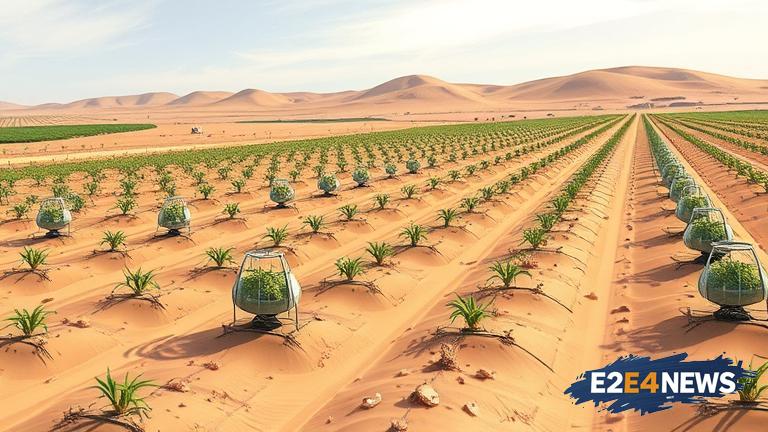Israel, a country known for its innovative approach to agriculture, has been at the forefront of developing and implementing cutting-edge desert farming techniques. These methods have been designed to boost crop yields, reduce water consumption, and promote sustainable farming practices. The country’s arid climate and limited water resources have driven the need for innovative solutions, and Israeli farmers have responded by adopting a range of pioneering techniques. One of the key methods being used is drip irrigation, which delivers water directly to the roots of plants, reducing evaporation and runoff. This approach has been shown to increase crop yields by up to 30% while reducing water consumption by up to 50%. Another technique being used is the application of specialized fertilizers and soil conditioners, which help to improve soil quality and increase nutrient uptake. Israeli farmers are also making use of advanced technologies, such as precision agriculture and vertical farming, to optimize crop growth and reduce waste. These methods involve the use of sensors, drones, and other monitoring systems to track soil moisture, temperature, and other factors, allowing farmers to make data-driven decisions about irrigation, fertilization, and pest control. The results have been impressive, with many Israeli farms reporting significant increases in crop yields and reductions in water consumption. The use of these innovative techniques has also helped to promote sustainable farming practices, reducing the environmental impact of agriculture and promoting biodiversity. In addition to the economic and environmental benefits, these methods have also helped to improve food security, providing fresh produce to local communities and supporting the country’s food industry. The Israeli government has been supportive of these initiatives, providing funding and resources to help farmers adopt new technologies and techniques. The country’s agricultural sector has also been boosted by the establishment of research and development centers, which are working to develop new and innovative solutions to the challenges faced by farmers. One of the key areas of focus is the development of drought-resistant crops, which are able to thrive in conditions of low water availability. These crops have the potential to revolutionize agriculture in arid regions, providing a reliable source of food and income for farmers. The use of advanced technologies, such as genetic engineering and precision breeding, is also being explored, with the aim of developing crops that are better adapted to the challenges of desert farming. The impact of these innovations is being felt not just in Israel, but around the world, with many countries looking to adopt similar techniques to improve their own agricultural sectors. The sharing of knowledge and expertise has been facilitated by international collaborations and partnerships, which are helping to promote the adoption of sustainable and innovative farming practices. As the global population continues to grow, the need for sustainable and productive agriculture will only continue to increase, making the development of innovative desert farming techniques a critical area of focus. The work being done in Israel is at the forefront of this effort, and is providing a model for other countries to follow. With its unique combination of innovative techniques, advanced technologies, and sustainable practices, Israel is poised to remain a leader in the field of desert farming for years to come. The country’s commitment to reducing its environmental impact, while also promoting food security and economic growth, is a testament to the power of innovation and collaboration in addressing the challenges of the 21st century. As the world looks to the future, it is clear that the development of sustainable and innovative farming practices will play a critical role in ensuring global food security and promoting economic growth. Israel’s desert farming techniques are just one example of the many innovative solutions being developed to address the challenges of agriculture in the 21st century.
